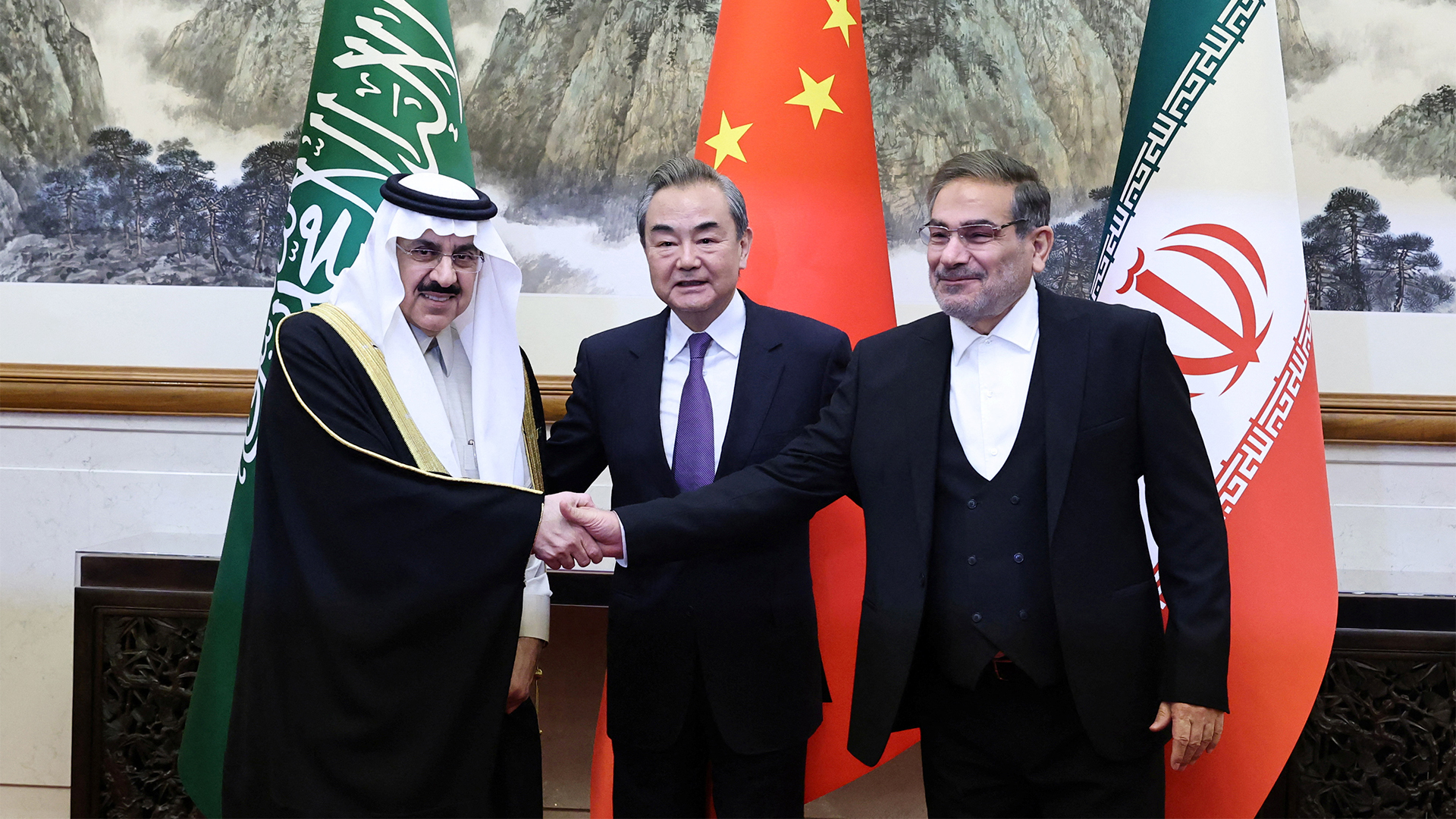After 7 years of diplomatic estrangement between Saudi Arabia and Iran, a joint statement between Tehran, Riyadh and Beijing stated that the two countries agreed - in talks led by the heads of their National Security Councils with Chinese support - to turn the page on their differences and normalize relations that witnessed many tensions.
The statements of officials in the two countries came to confirm the new approach in managing the relationship between them.
The Saudi Foreign Minister, Prince Faisal bin Farhan, said that the countries of the region share one destiny, which makes it necessary for them to share to build a model of prosperity.
On the Iranian side, Iranian Foreign Minister Amir Abdollahian said that the policy of good neighborliness is pivotal and we continue to work towards more regional steps. Abdollahian added that the return of Iranian-Saudi relations provides great potential for the region and the Islamic world.
It is noteworthy that it was agreed between Saudi Arabia and Iran to resume diplomatic relations and reopen the two embassies and diplomatic representations within two months, and this agreement was reached after talks that took place in Beijing with Chinese President Xi Jinping, and the two countries’ agreement included activating the security cooperation agreement between them, and mutual respect And the obligation not to interfere in internal affairs.
Why China?
Regarding the context of this step, the head of the Gulf Research Center, Abdul Aziz bin Saqr, explained - in his interview with the "Beyond the News" program (10/3/2023) - that the previous security meetings aimed to ensure that the Iranian government is able to protect diplomatic facilities as stipulated. According to international agreements, Tehran has provided sufficient guarantees in this regard.
Saudi Arabia also wanted to ensure respect for the sovereignty of states and the balance of international and regional relations, especially as Riyadh is rearranging its relations with Turkey and Iran.
As for Iran, it has suffered from isolation due to its tense relations with neighboring countries, but this rapprochement will enable the two sides to engage in diplomatic dialogue.
Regarding China's intervention, bin Saqr explained that it is the largest country that has economic relations with Saudi Arabia and the Gulf states, and it is Iran's largest economic partner, which enabled it to play a vital role and ensure security and stability in the region.
He explained that the return of the relationship between Saudi Arabia and Iran would open the door wide for discussing all files in the region, including maritime and energy security, militias and Hezbollah in Lebanon and the Houthis in Yemen, noting that it is a favorable opportunity to resolve outstanding issues in the region.
Security scramble
In turn, the researcher specializing in regional issues, Muhammad Salih Sadeqian, indicated that Iraq embraced 5 attempts of security talks between Iran and Saudi Arabia, which made the two sides reach important points in order to explore positions and how to move forward towards the direction of diplomatic relations between them, but the surprise was the entry of China on the line and put security dialogues at the forefront of concerns.
He explained that the regional security scramble in the region is what made Saudi Arabia and Iran try to put their relations in perspective, considering that the two countries have reached a common conviction, which is that the winner in the security scramble will also be a loser at the same time, because it does not serve their interests.
He also expected that the countries of the region would benefit from this rapprochement, as thorny issues would be resolved, which made various countries welcome this step.
As for Israel, it does not want any "regional-regional" rapprochement, but rather always aspires to sow division between countries, as Sedekian says.
Reactions
In the context of international positions, China said, through the words of its chief diplomat, Wang Yi, that the talks and dialogue between Saudi Arabia and Iran in Beijing are a victory for peace.
As for the United States, it said it was aware of the Saudi-Iranian contacts, indicating through its National Security Council spokesman, John Kirby, that what Washington cares about is ending the war in Yemen and stopping attacks on Saudi Arabia.
The Iraqi Foreign Ministry, which played a role in bringing Tehran and Riyadh closer, expressed Baghdad's welcome to the agreement, hoping that it would open a new page in diplomatic relations between the two countries.
The Turkish Foreign Ministry also confirmed that the resumption of relations between Iran and Saudi Arabia is an important step that will contribute to the security and stability of the region.
For its part, the Lebanese Foreign Ministry affirmed that the agreement between Saudi Arabia and Iran will have a positive impact on all regional relations.
Hezbollah Secretary General Hassan Nasrallah described the agreement as a good transition in the region.
On the other hand, Israeli media quoted an Israeli official as saying that the Saudi-Iranian agreement would affect the possibility of normalizing relations between Riyadh and Tel Aviv.

